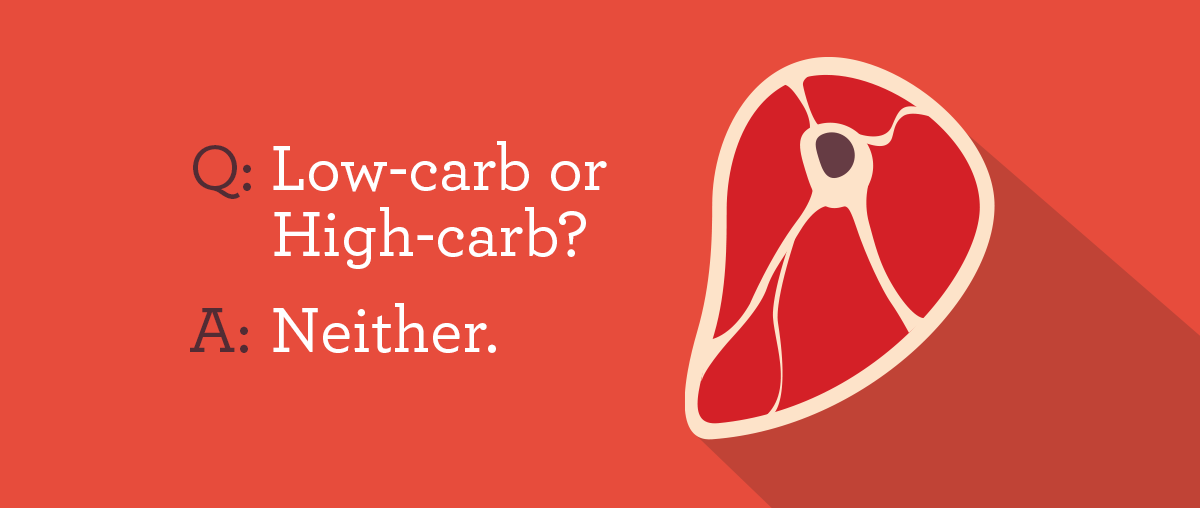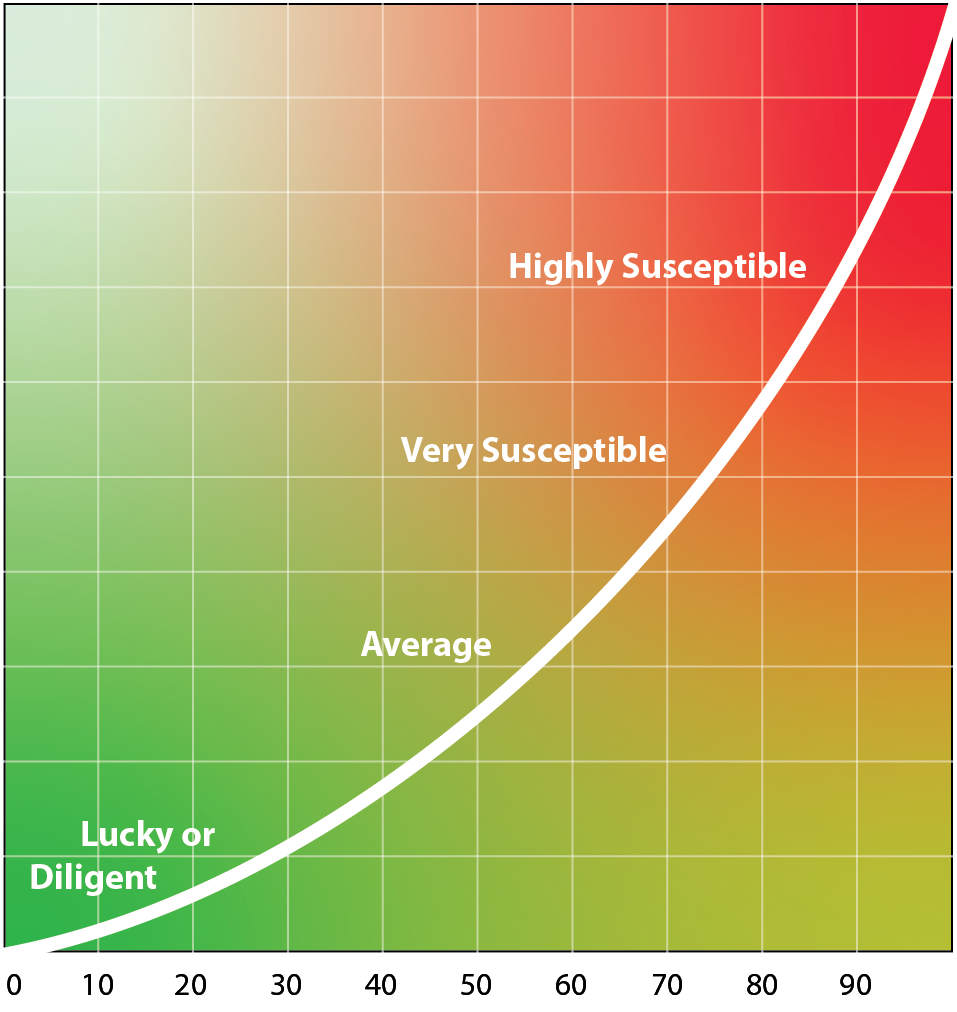New Study Argues Against Very Low-Carb Eating

Moderation in all things. Did your grandmother ever tell you this? A recently-published meta-analysis says she was right.
A new large-scale study
Researchers who pooled the results of eight large studies covering more than 430,000 people have found that eating a moderate amount of carbohydrates is best for a long and healthy lifespan. The study showed that people who get less than 40% or more than 70% of their calories from carbs die sooner than people who get an intermediate, moderate amount. The high-carb profile would include diets with high amounts of sugar-added foods. The low-carb profile would include Atkins-style or Ketogenic-style eating.
How many years do you lose?
They found the moderate-carb eaters lived four years longer than those on low-carb diets and one year longer than those who ate a high-carb diet. This works out to be a 15% higher risk of total mortality for the low-carb eaters, broken down as a 13% higher risk of cardiovascular mortality and an 8% higher risk of cancer mortality, compared to moderate-carb diets.
Not all low-carb diets are equal.
People in the low-carb group who ate a lot of meat and animal fats had a particularly high mortality risk, whereas those who chose proteins and fats from plant-based foods such as avocados, legumes (beans) and nuts did better.
For optimal hunger control, iDiet focuses on a moderate level of healthy, slow-digesting carbs and moderately high fiber. Depending on an individual’s dietary needs, we customize outside that range if necessary.
What does ‘carb’ mean to you?
Carbohydrates are not just sugars and flour. Foods with carbs are the only source we have of fiber, and fiber is great for nourishing the beneficial bacteria in our intestines, lowering our cholesterol, reducing the risk of colon, breast, and other cancers, and making us feel full longer. We evolved to eat a lot of fiber, and our health improves with a high-fiber diet. In fact, we evolved to eat 8 times more fiber than the typical American consumes.
Whole grain or high-fiber carbohydrates are good choices. Examples are black beans, whole fruit (not juice), nuts, chia seeds and whole grains — not white bread, white pasta and pastries.
Nutrients are key
We do need protein, but eating too much meat can crowd out other nutritious foods that support health. In fact, within the low-carb group studied, those who ate more fruits and vegetables had a higher life expectancy than the others who did not.
Dr. Sara Seidelmann is a clinical and research fellow in cardiovascular medicine from Brigham and Women’s Hospital in Boston, and led the research published in the Lancet public health journal. She makes a distinction between animal and plant protein when she explains “Our data suggests that animal-based low-carbohydrate diets, which are prevalent in North America and Europe, might be associated with shorter overall lifespan and should be discouraged. Instead, if one chooses to follow a low-carbohydrate diet, then exchanging carbohydrates for more plant-based fats and proteins might actually promote healthy aging in the long term.” This is likely because plants generally provide more vitamins, minerals, and micronutrients per calorie than animal protein does.
Tips to use this knowledge in your life:
- Consider replacing some of your animal protein with plant protein sources that you enjoy.
- Eat more veggies. Less than 15% of Americans eat enough veggies.
- Don’t be afraid of carbs from fruit and berries — unless it’s in the form of juice.
- Remember that ‘carbs’ is a big category — it’s not just sugar and white flour. Whole grains, fruits, and vegetables are all carbs.
- Fiber feeds the beneficial bacteria in our intestines. Meat does not feed them.
- There is no fiber in meat. Zero. Fiber only comes from grains, vegetables, fruits, beans, and other plants.
Dr. Seidelmann, who is both a cardiologist and a nutritionist, made it clear their goal with this study was “to thoroughly answer a question and not simply provide just one piece of the picture” and we agree.
Our takeaway
Extreme diets such as low-carb or no-carb might seem tempting as a quick fix, but they do not support long-term health. In addition, very low-carb diets artificially inflate weight loss by causing excess water excretion — you think you are doing better than you actually are, and that can be discouraging if you have a cheat day or when you come off them and the scale suddenly jumps up 3 pounds. And you do eventually come off them — because they are so hard to sustain.
This is not to say that you shouldn’t ever do them. iDiet menus are flexible and we are ready to support you whatever dietary pattern you want to start on. But over time, we will help you transition to a sustainable eating plan that supports lifelong health.
A note on observational study limitations:
Observational studies, even large ones like this one, can not definitively prove cause-and-effect — they can only uncover patterns in a particular dataset or population. The authors were quick to point this out. However, they said people who embraced western-type diets that heavily restricted carbohydrates often ate fewer vegetables, fruits, and grains and more animal proteins and fats. Some of those animal products have been implicated in stimulating inflammation, increasing biological aging and oxidative stress, which could be a contributing factor to the increased risk of mortality. At the same time, getting fewer antioxidants, minerals, vitamins, and less fiber from plants makes it harder for the body to fight disease.
Register Today
Choose the program that’s right for you.

 Yes! I want to receive a 38-page cookbook, and be informed of upcoming classes. No obligation, instant download.
Yes! I want to receive a 38-page cookbook, and be informed of upcoming classes. No obligation, instant download. 